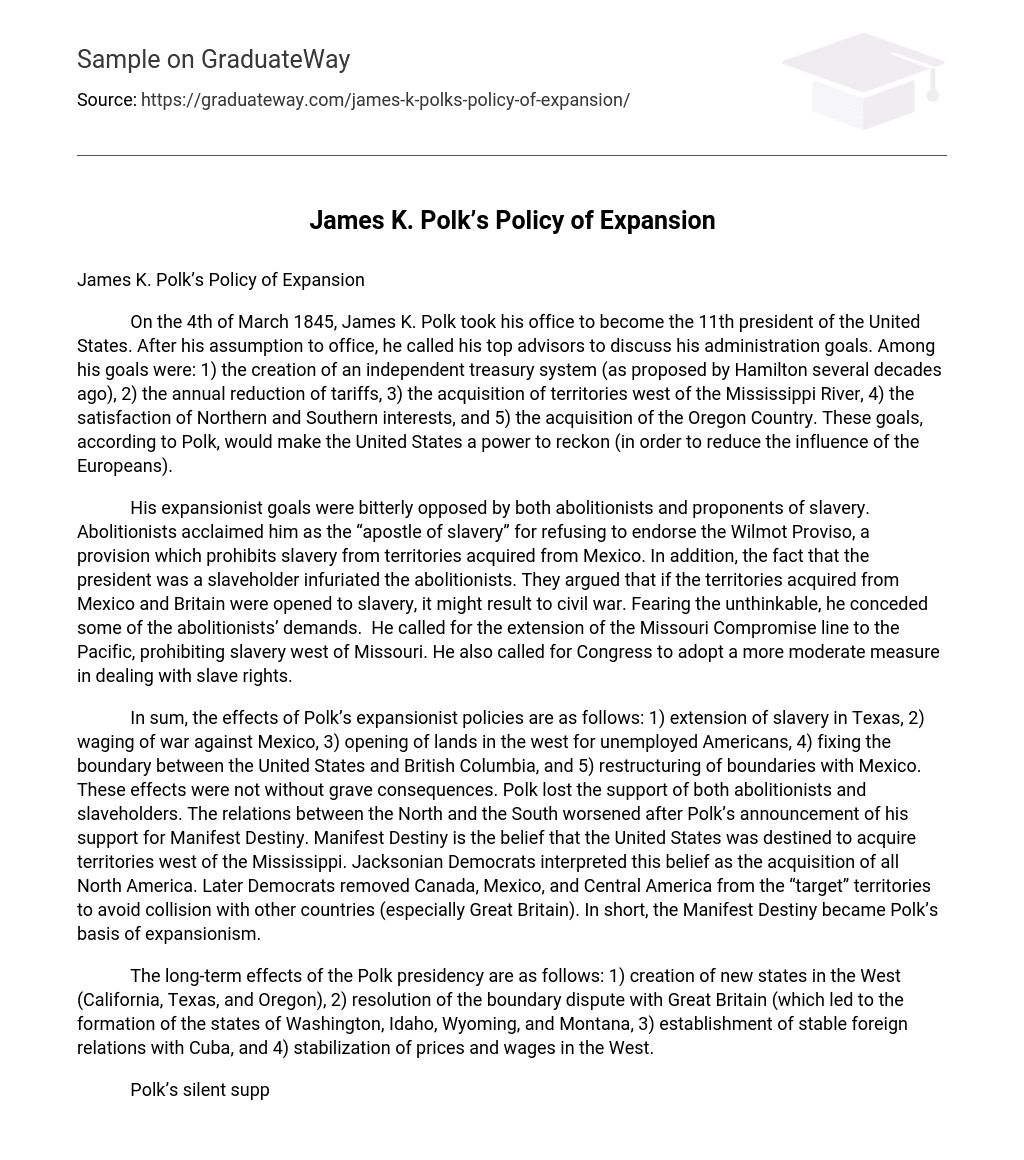On the 4th of March 1845, James K. Polk took his office to become the 11th president of the United States. After his assumption to office, he called his top advisors to discuss his administration goals. Among his goals were: 1) the creation of an independent treasury system (as proposed by Hamilton several decades ago), 2) the annual reduction of tariffs, 3) the acquisition of territories west of the Mississippi River, 4) the satisfaction of Northern and Southern interests, and 5) the acquisition of the Oregon Country. These goals, according to Polk, would make the United States a power to reckon (in order to reduce the influence of the Europeans).
His expansionist goals were bitterly opposed by both abolitionists and proponents of slavery. Abolitionists acclaimed him as the “apostle of slavery” for refusing to endorse the Wilmot Proviso, a provision which prohibits slavery from territories acquired from Mexico. In addition, the fact that the president was a slaveholder infuriated the abolitionists. They argued that if the territories acquired from Mexico and Britain were opened to slavery, it might result to civil war. Fearing the unthinkable, he conceded some of the abolitionists’ demands. He called for the extension of the Missouri Compromise line to the Pacific, prohibiting slavery west of Missouri. He also called for Congress to adopt a more moderate measure in dealing with slave rights.
In sum, the effects of Polk’s expansionist policies are as follows: 1) extension of slavery in Texas, 2) waging of war against Mexico, 3) opening of lands in the west for unemployed Americans, 4) fixing the boundary between the United States and British Columbia, and 5) restructuring of boundaries with Mexico. These effects were not without grave consequences. Polk lost the support of both abolitionists and slaveholders. The relations between the North and the South worsened after Polk’s announcement of his support for Manifest Destiny. Manifest Destiny is the belief that the United States was destined to acquire territories west of the Mississippi. Jacksonian Democrats interpreted this belief as the acquisition of all North America. Later Democrats removed Canada, Mexico, and Central America from the “target” territories to avoid collision with other countries (especially Great Britain). In short, the Manifest Destiny became Polk’s basis of expansionism.
The long-term effects of the Polk presidency are as follows: 1) creation of new states in the West (California, Texas, and Oregon), 2) resolution of the boundary dispute with Great Britain (which led to the formation of the states of Washington, Idaho, Wyoming, and Montana, 3) establishment of stable foreign relations with Cuba, and 4) stabilization of prices and wages in the West.
Polk’s silent support for slavery made him an unpopular president. Yet, in the span of four years, he was able to increase the geographical might of the United States, stabilize the country’s currency, resolved disputes with Great Britain, and created efficient government agencies. History however has marked him a president who supported slavery until his death. Needless to say, though, his actions made the United States a power in North America.
Work Cited
Foner, Eric. Give Me Liberty: An American History. New York: W.W. Norton & Company, 2005.





